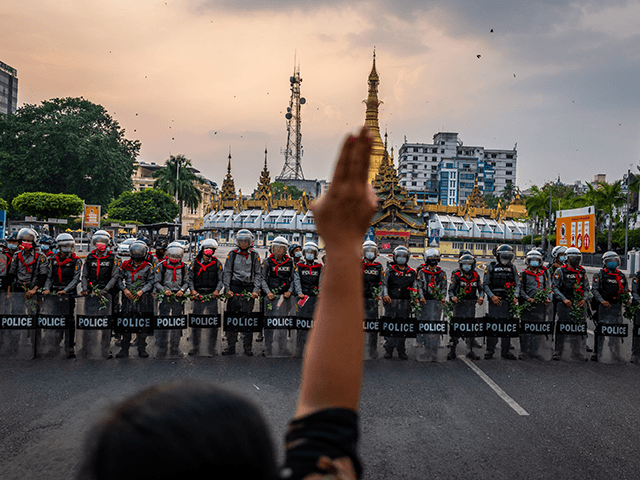Burmese poet Khet Thi, an ardent opponent of the junta that seized control of Myanmar from its elected civilian government in February, was arrested by regime forces Saturday along with his wife Chaw Su.
Chaw Su was released after interrogation, but Khet Thi died in custody, allegedly due to heart failure. His body was returned to his family with his internal organs missing.
Khet Thi, 45 according to his Facebook profile, had been using his poetry to criticize the junta. Reuters portrayed him as a lively writer, a former engineer who quit his job in 2012 to focus on poetry, whose resistance to the military regime hardened as the regime used deadly force against protesters:
“I don’t want to be a hero, I don’t want to be a martyr, I don’t want to be a weakling, I don’t want to be a fool,” he wrote two weeks after the coup. “I don’t want to support injustice. If I have only a minute to live, I want my conscience to be clean for that minute.”
More recently, he wrote that he was a guitar player, a cake baker and a poet – not someone who could fire a gun. But he implied his attitude was changing.
“My people are being shot and I can only throw back poems,” he wrote. “But when you are sure your voice is not enough, then you need to choose a gun carefully. I will shoot.”
One of the people shot by police was K Za Win, a fellow poet and friend of Khet Thi killed while shielding other protesters from gunfire on March 3. “They shoot in the head, but they don’t know the revolution is in the heart,” Khet Thi wrote in one of his protest poems.
Poetry plays a major role in Myanmar’s political culture, dating back to the British colonial era. Khet Thi became the third prominent poet to be killed since the coup, and at least nine others have been arrested.
According to Chaw Su, she and her husband were detained for interrogation on Saturday in the town of Shwebo, central both to Myanmar’s geography and the protest movement. She said they were both interrogated and she was released afterward, while Khet Thi was held for unspecified reasons.
“They called me in the morning and told me to meet him at the hospital in Monywa. I thought it was just for a broken arm or something,” she said. “But when I arrived here, he was at the morgue and his internal organs were taken out.”
Chaw Su said she did not believe the hospital’s claim that her husband died from a heart problem. The Assistance Association for Political Prisoners (AAPP), a nonprofit activist group based in Thailand, stated that Khet Thi “died at the hospital after being tortured in the interrogation center.”

COMMENTS
Please let us know if you're having issues with commenting.